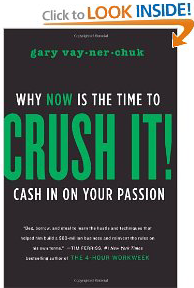Pretty soon, you’ll be donning that graduation cap, walking across the stage and taking your first step into the world of entry-level employment. Hopefully you’ve set yourself up for success throughout your college career by completing at least one internship, getting involved in on-campus groups and building a portfolio. What else is crucial to landing a job today?
Creating a job search plan. What many job seekers fail to do is create a plan consisting of multiple job search strategies in order to reach their goal. Merely combing job boards or applying to a few company openings probably won’t result in a job offer—or even an interview—in today’s tough market. You must be prepared, organized and diligent in every aspect of your job search, and creating a plan can help you stay on track.
Spending time “company searching” as opposed to “job searching.” Part of your job search plan should be identifying 5-10 ideal companies that you’d like to work for. From there, you can work on making connections at those organizations, learning about their culture and determining your fit, and watching for openings and opportunities that are right for you.
Networking early and often. Your network is a vital resource in your job search. Friends, family, colleagues and acquaintances can help you learn about unadvertised openings, get an “in” at a specific company, or provide support while you’re job seeking. Keep in contact with important connections by adding them on professional and social networking sites, and reaching out to them to stay top of mind.
Branding yourself. You need to be your own advocate in your job search. This means having a clear idea of what makes you different from all of the other candidates vying for the same job as you (also known as your unique selling points). Communicate and share your personal brand by consistently marketing yourself across all social and professional networking platforms, as well as on your resume, cover letter and portfolio.
Harnessing the power of alumni. Don’t forget about the network you’re already a part of as a resource in your job search, which is your college or university. Consider contacting former students that are working in your field to ask for advice and job shadow opportunities. Join your college alumni network or search for groups on Facebook and LinkedIn. Because you already have something in common—your education experience—it will be easier to reach out to that individual and build a mutually beneficial relationship.
Taking things offline. While the Internet is a valuable resource for any job seeker, don’t neglect the power an in-person meeting can have. This can involve inviting another professional to lunch whom you’ve only talked with online, attending group and association meetings, and participating in conferences and meetups.
Volunteering your time. Not only can volunteering help eliminate gaps in your resume, but you can also make valuable connections with individuals at the organization. It’s also a great way to build upon your skills and add additional pieces to your professional portfolio.
Although your job search might not produce results right away, it’s important to stick with it and maintain a positive attitude throughout the process. You never know when you’ll meet someone who could lead you to your next opportunity!
What other tactics would you add to this list? Prospective graduates: What’s your plan to stand out in this job market?
 Heather R. Huhman is a career expert, experienced hiring manager, and founder & president of Come Recommended, a content marketing consultancy for organizations with products that target job seekers and/or employers. She is also the author of #ENTRYLEVELtweet: Taking Your Career from Classroom to Cubicle (2010) and writes career and recruiting advice for numerous outlets.
Heather R. Huhman is a career expert, experienced hiring manager, and founder & president of Come Recommended, a content marketing consultancy for organizations with products that target job seekers and/or employers. She is also the author of #ENTRYLEVELtweet: Taking Your Career from Classroom to Cubicle (2010) and writes career and recruiting advice for numerous outlets.

